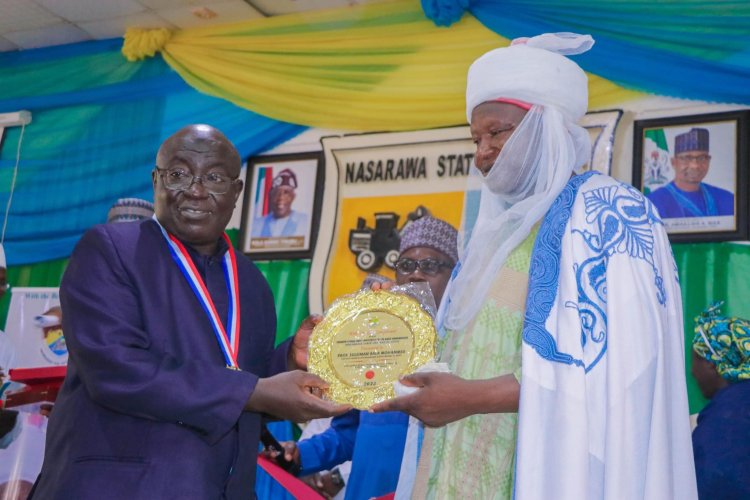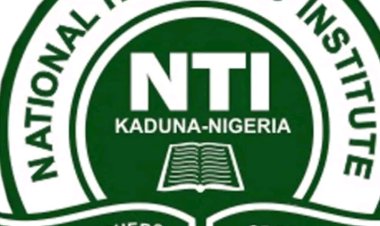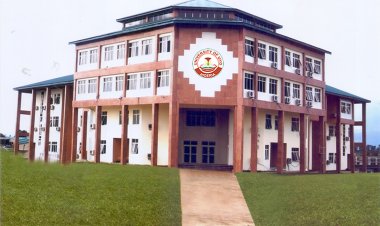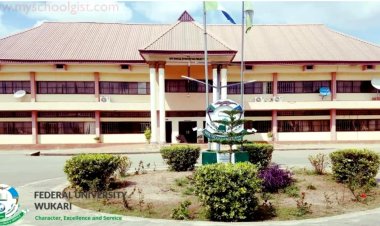NSUK Institute For The Built Environment Holds 1st Public Lecture Series, Calls For More Action To Save The Environment
NSUK Institute For The Built Environment Holds 1st Public Lecture Series, Calls For More Action To Save The Environment

The Emir of Nasarawa His Royal Highness Alhaji Ibrahim Usman Jibril has called for more action and advocacy to save the environment from further degradation.
The royal father made the call when he delivered the 1st Public Lecture Series of the Ibrahim Usman Jibril Institute For The Built Environment which took place at the Assembly Hall of the University.
The Emir while delivering the lecture titled “Environmental Governance: Between Policy and Practice” opined that there is no part of the country that is not facing Environmental issues or challenges noting that the Northern part of the country is facing the challenges of desertification and desert encroachment, maintaining that in some parts of the North East sand dunes are moving southwards at an alarming rate of about 400 meters per annum.
He also noted that the North Central is also facing the challenges of massive gully erosion as a result of constant deforestation and other harmful agricultural practices. The Environmental activist painted a scary picture where the Guinea Savannah is gradually turning into the Sudan Savannah, while the Sudan Savannah is turning into the Sahel Savannah and the Sahel Savannah is gradually turning into the Sahara Desert.
The presenter maintained that the Southern part of the country is also facing the challenges of coastal erosion, destruction of the mangroves, rising sea level and in some places massive deforestation, massive oil pollution as well as dangerous and very destructive gully erosion.
Highlighting the policy and practice in Nigeria, the Environmental exponent observed that in December 1998, the Federal Environmental Protection Agency FEPA was established, a little over a decade later the Federal Ministry of Environment was created to take over the entire functions of FEPA.
The Ministry has several technical departments, including climate change, pollution control and management, desertification control, forestry & wildlife conservation, and environmental Assessment & Inspectorate Services. The Ministry also oversees and supervises agencies such as NESREA, EHORECON, NOSDRA, FRIN, NGGW, HYPREP and NBMA.
The guest lecturer opined that there seems to be more serious efforts about environmental issues at the national level than at the sub-national level in Nigeria. Stressing that there are more technically competent personnel at the Federal level than at the sub-national level. He added that the gap must be addressed to enable the country move forward in a much faster and more efficient way to save the environment.
See Also: Zenith Bank Donates Mattresses to Nasarawa State University (NSUK)
Earlier, the Vice-Chancellor Professor Suleiman Bala Mohammed thanked the lecturer His Royal Highness Alhaji Ibrahim Usman Jibril for his active contributions towards the sustenance of the environment through advocacy and presentation of lecturers, and also for bringing EBAFOSA to the University, making the University the first in Nigeria to have such an outfit.
There were goodwill messages from the Accountant-General of Nasarawa State, Rt. Hon. Musa Muhammed Ahmed, the Member Representing Nasarawa, Toto Federal Constituency, Hon. Abdulmumin Ari, who contributed 10 Desktop Computers to the Institute, and a host of other dignitaries who added colour to the occasion.
The highlight of the event was the investiture of the board members of the institute by His Royal Highness Ibrahim Usman Jibril.

 Amanna
Amanna 


